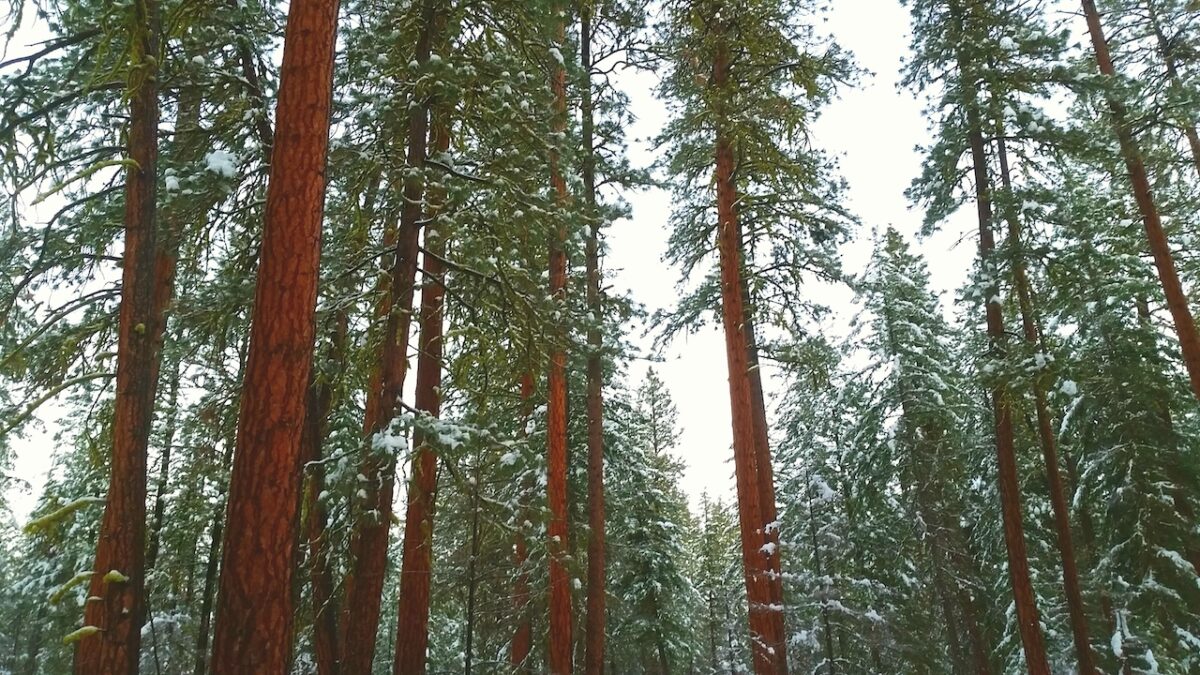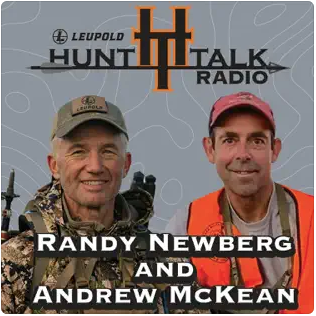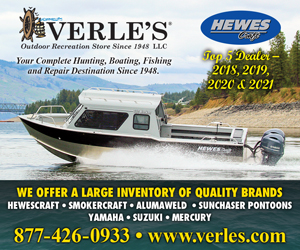
Podcast On Hunting’s Future In WA, US Wraps Up With 13 Forward-looking Ideas
A deep dive into the future of hunting and wildlife management in the Northwest and across America and our place in that wrapped up this week with a toolkit for sportsmen to get and stay involved in charting a broadly supported path forward.
A baker’s dozen worth of ideas were featured on the fourth and final podcast in a fine series put together by Hunt Talk Radio‘s Randy Newberg and Outdoor Life magazine’s Andrew McKean and which looked in part at goings on in Washington that I’ve been reporting on for past few years, as well as the national state of play.

“In this final episode, we outline a number of action items that can be used to ensure that more species are conserved, more landscapes are prioritized for wildlife and wildlife recreation, and more people are involved in wildlife management in America,” writes McKean on OL’s website.
That last item – building a bigger tent – might be anathema to some in our community, but the pair of Montana residents look at it from the perspective of abundance, in the sense that more sportsmen or sportsmen-aligned equal more voices.
Their plan calls for better messaging and messengers, from being a good ambassador for hunting and fishing to becoming “a more sophisticated communicator.”
“If we want to create more public support for fishing and hunting, we need to talk about ecosystem benefits of these practices – clean water and healthy watersheds, organic meat and healthy lands, rural traditions, and self-sufficiency,” McKean writes.
One of the absolute greatest triumphs of hunter-funded direct conservation is that even as even as nearly all of North America’s birds are seeing massive population declines, wetland species – and not just ducks, folks, but waterbirds that also depend on marshes, bottoms and other perpetually or seasonally moist areas – are actually increasing. Preserving and creating wetlands also yields ecosystem benefits like slowing and retaining water, recharging aquifers, providing fish, bird and wildlife habitat, and filtering pollutants.

McKean and I are admittedly both middle-aged white males and we’ve done our fair share in getting the message out (OK, I’m riding some reaaaaaaaaaaaaaaaaaaaaaaaaally big coattails to be able to say that), but it’s time to “empower young, diverse, authentic voices to carry the message that hunting and fishing is conservation,” he urges.
I’ve encouraged that here and in the magazine and recently was really proud to run Sara Potter’s October column bringing attention to the slow pace of restoring her beloved North Umpqua, a storied Western Oregon watershed known for its fierce defenders and which was severely burned in September 2020’s Archie Creek Fire, impacting salmon and steelhead habitat. Over the years Sara has proven herself an eloquent fisherman in touch with her river and forest, but taking that next step to advocacy – or at least paying more attention to what’s going on and not just being a resource user without giving back at some level – is so critical to being a well-rounded sportsman today and might even be a requirement in the future.
Among some of the other 13 tools in the McKean-Newberg kit: “Hold wildlife trustees accountable”; “Reduce patronage influence in commission appointments”; “Participate”; “Know the rules and require adherence to them”; “Hunters and anglers need to recognize national change in wildlife values”; “Be open to change”; “Support professional wildlife management”; “Project our track record of conservation success into the future.”
McKean also calls on sportsmen to support national hunter organizations, with an apparent eye towards those that are “non-partisan enough to build a broad coalition.” The future of fish and wildlife suffers in these overly sectarian times. Believe it or not, me and the critters and their habitat need BOTH sides – especially to fend off the worst impulses of the fringes, as we’re seeing in Democratic-controlled Washington and as we’ve seen in the recent past with Republican pushes to privatize public lands and scrap Pittman-Robertson’s excise taxes that have funded conservation, wildlife management, shooting ranges and more to the tune of $15 billion as of July 2022. As a source recently reminded me, “conservation isn’t a D or R or liberal or conservative, red or blue thing. It’s always been purple, a bipartisan issue.”
It’s tough to trust folks who may be new to the deer woods or look at them in a different way than we do, but mathematically we don’t stand a helluva chance of staying relevant – a key concept in the third of McKean and Newberg’s podcasts – if we don’t reach out to like-minded folks and form alliances around common goals. That’s why I think the eight-year term of Kim Thorburn on Washington’s Fish and Wildlife Commission – the subject of their second podcast – was so incredibly groundbreaking. It showed us that we don’t necessarily need to fear the vegan birdwatcher from the (relatively) big city wielding authority over our interests. Thorburn got us, and is continuing to preach how critical good fish and wildlife governance is, a concept we all need to bone up on more. Hell, now I’m a birdwatcher and love it – turns out they’re not all just Little Brown Birds!!!
“As long as we don’t treat our wildlife commissions and agencies as an exclusive club, where only those who think and look like us are welcome, we can help guide change well into the future,” McKean writes. “We need to tell our conservation success stories widely and well while welcoming stories and support from non-traditional communities and perspectives. As Newberg said, this is abundance thinking. We can’t continue to demand a bigger slice of the pie. Instead, ‘we need to demand a bigger pie.'”
Yeah. Let’s start cooking.
(And somebody nominate these two gents for state, regional and national outdoor communicators awards, this has been one hell of a great series and listen – here are links to parts 1, 2, 3 and 4. This Outdoor Life article comparing and contrasting conservation and preservation is a pretty good read as well.)

